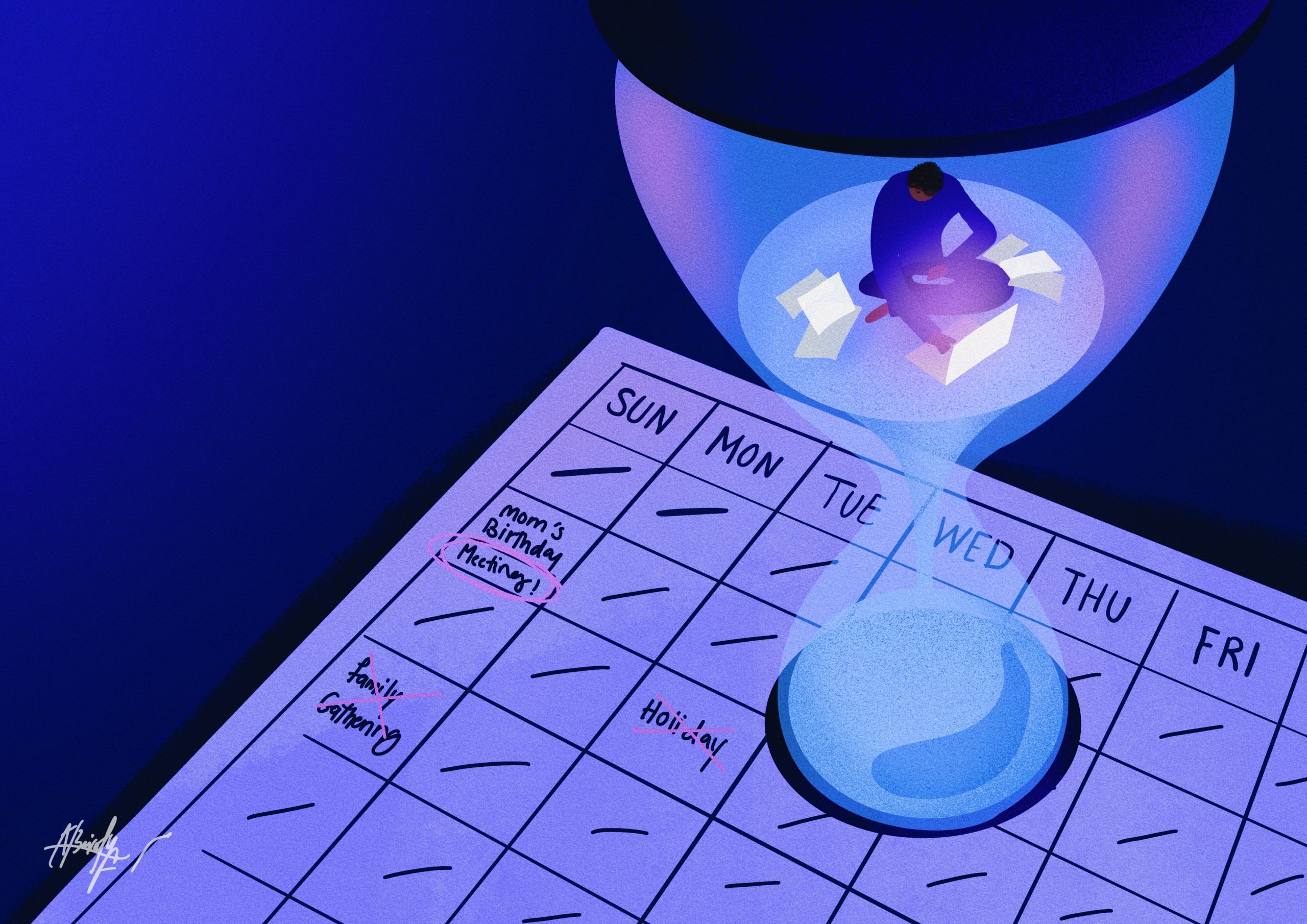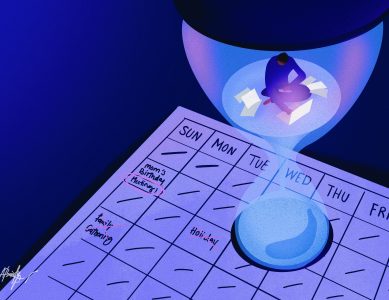The latter often coincides with the discovery of one’s clairvoyant abilities. He can now predict to a high degree of accuracy who’s calling when his phone rings, or at least he can narrow it down to five because his world has significantly shrunk. He previously received daily a tsunami of calls from a marathon of people eager to get in his good graces.
Corporate lineage entails that financials and results – tangibles- are the measures of achievement. But when he finally expressed some expectation for more in return for his long-committed service, he received what he likes to call the company sedative: “We value your contribution”, “you’re worth your weight in gold.” No tangibles. Nothing except a handful of warm-and-fuzzy verbiage – the equivalent of a big metaphorical hug. It was true. They did value his service, and he is worth his weight in gold, but they were not able to translate the warm fuzzies into tangibles that he valued. Neither did they attempt to. That’s when the spell was broken, and the realization finally sunk in.
Over the years, he’d been giving little pieces of himself away to everyone and everything he thought needed him. He missed many precious moments of his children growing up, weddings, birthdays, and funerals. Those who loved him made excuses for him, including his mother in her final living moments. She knew she couldn’t say goodbye to him because he was attending meetings with his clients on another continent. But she was always proud that her youngest son was so committed. She taught him honest work is worship, that he must never compromise his dignity and self-respect, and that no good deed goes unrewarded. So he put his head down, pushed his body and mind beyond their limits, and never asked anyone for anything believing that someone would eventually notice.
He believed that happiness was not his story. That there are other things more important than connectedness. He was called selfish by those he called his nearest and dearest. They believed he was doing all of this to give himself significance, to feed his ego. He never felt the need to justify. They had no idea he only allowed himself to splurge on two suits a year. Everything else went into the children’s education fund and a quality of life for them that his parents could never afford. When he was a boy, he had one pair of shoes to last him the entire year. He learned to patch them up when they had holes in them. He never wanted his kids to be in lack of anything. Yes, it was for the kids. He had also developed such a sense of separateness from his surroundings that he no longer knew who he was when he wasn’t on the job. His work gave him meaning and distracted him from any painful situation in his life, a productive escape.
Now pushing 50, he pondered all of those missed opportunities. He thought with deep regret of all the things he would have done if only he wasn’t afraid. He had internalized their voices in his head. All the people who told him he wasn’t enough of one thing or another. He was not dark enough or fair enough, not tall enough or smart enough. Not young enough, not old enough, not educated enough, or because he was blunt, that he didn’t have enough finesse. There was an ever-present glass ceiling that accompanied him wherever he went, no matter how great his customers thought he was, how outstanding his financial results, or how thoroughly he knew his business. In his case, the ceiling is made of concrete. To push through it, he needed to go back and be reborn as someone else.
The voices of those who loved him, encouraged him, and complimented his tremendous qualities and capabilities despite his high emotional walls were drowned out by the others he now trusted as the narrators of his story. But for the first time in his life, he felt a bolt of urgency to change his story. He wanted to get out of his “comfort zone,” which was never really that comfortable. Things were never bad enough for him to leave but not good enough to keep that fire of enthusiasm going to last all the years of contribution he felt he had in him. He knew that to be more successful; he needed to be more of himself, not less. He needed to forget about that box entirely which he was always told to fit into by twisting himself like a masterful contortionist and reclaim instead the square that he occupies in the world. Daddy feels he must now teach his children another type of lesson, more important than any…how to be the master of your destiny, follow your own dreams, succeed, and enjoy every single minute of it.
What was he waiting for? Steve was already being prepared to be the boss. With a Ph.D. in Mathematics from a top-tier university and a few years of experience in the leading company in snack foods – not the business – he was being fast-tracked to the top. He fit the company’s story; it is a forward-thinking company. But in fact, it was a company aspiring to master the art of optics and perception management. It went unnoticed that Steve here was struggling to lead a team of 3, let alone the big business that he built, which Steve was only too eager to put his name on. He was content in the past not to be named or seen except for the results of his work. If you look closely enough, you may even see traces of his fingerprints all across the walls of the company he so loved. He was in every chapter of its history and critical turning points until it became one of the top in its industry. He was always content to stay in the background because he was part of something so much greater than himself. He could be called the company’s organizational memory at a time when its exit has become a revolving door.
This is one of the reasons why Peter Drucker’s advice to develop a parallel career is invaluable. Observing this scenario unfold too often has prompted me to write about a topic that has already been written about generously by others.
No one expects to have regrets about a life that was so carefully crafted with such a sense of responsibility, love, and commitment, but who can predict what happiness will look like for themselves twenty or thirty years down the road. Science tells us that we change about 330 billion cells in our bodies every day, equivalent to 1% of all of our cells, and about 30 trillion between 80 and 100 days. Yet we expect our loves, likes, dislikes, even the logic and values through which we weigh up decisions involving trade-offs between happiness and other dimensions of our lives, to remain the same 25 years hence.
Noah, therefore, decided to become an entrepreneur. He felt freed by that decision. He could no longer bare, not for another minute, the life which he had carefully constructed to its most granular detail, with his beautiful houses, the fine furniture, matching fabrics, curtains and paint and especially those pretend photos on the fireplace mantel. It had all turned into a suffocating space closing in on him. He sensed a long-overdue transformation approaching. Some may think it’s too late, but not for someone like him. Even if he needed to learn something new, he wouldn’t let moving from the top 20% to the 80% in the next level intimidate him. So he took out his notebook and his pen from the drawer of his bedside table. He went to a random blank page and wrote in bold letters on the top: “CHAPTER THIRTEEN: THE BEGINING”.


